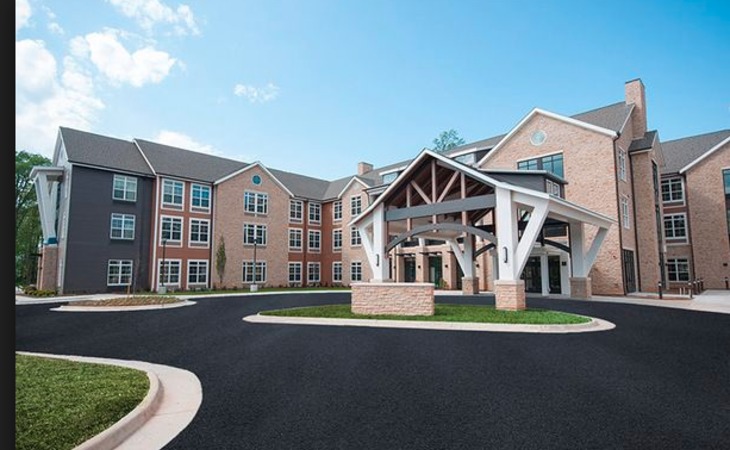Charlotte Memory Care: Specialist Assisted Living for Memory Support
Charlotte Memory Care: Specialist Assisted Living for Memory Support
Blog Article
Creating a Safe and Supportive Setting: In-Home Memory Care Essentials
Developing a safe and nurturing environment for people needing at home memory treatment is paramount to their health and lifestyle. From guaranteeing safety and security within the space to employing reliable communication strategies and carrying out memory-friendly design components, there are vital components that add to a holistic treatment approach. By concentrating on creating a helpful ecosystem that provides to the unique requirements of those with memory impairments, caretakers can dramatically enhance the day-to-day experiences of their loved ones.

Safe Living Setting
Developing a protected and hazard-free living atmosphere is paramount when supplying in-home memory look after individuals with cognitive disabilities. Guaranteeing the safety and security of the individual with memory loss is critical to avoid crashes and promote a sense of health. One essential element of developing a secure living environment is to eliminate any kind of possible hazards that might bring about slides, trips, or falls. This includes protecting loosened carpets, ensuring sufficient illumination in all locations of the home, and keeping pathways clear of clutter.
Furthermore, it is crucial to set up security functions such as grab bars in shower rooms and hand rails along staircases to offer support and avoid accidents. Additionally, making use of technology such as motion sensing units and alarm systems can inform caretakers if the individual wanders or remains in distress. Developing a risk-free living atmosphere also involves implementing methods to stop wandering, such as utilizing door alarm systems or locks to restrict accessibility to unsafe areas. By prioritizing security steps and removing possible threats, caregivers can offer a secure and encouraging environment for people with cognitive disabilities receiving at home memory treatment.
Efficient Interaction Techniques
Executing customized communication methods is important in cultivating meaningful communications with people with cognitive disabilities in the context of at home memory care. Efficient interaction plays an essential duty in creating a helpful setting that enhances the wellness and top quality of life for individuals with memory problems. When interacting with a person experiencing cognitive decline, it is necessary to make use of simple and clear language, keep a calm and positive tone, and offer visual signs to help understanding.
One key technique is to exercise energetic listening, revealing compassion, persistence, and regard during conversations. Non-verbal cues such as faces and body language can likewise assist communicate understanding and assistance. In addition, using reminiscence therapy by talking about past experiences or making use of music and art can use long-term memories, stimulating connections and promoting interaction.
Additionally, integrating routine routines and constant communication patterns can offer a sense of familiarity and protection for people with memory disabilities. By carrying out these interaction techniques, caregivers can establish meaningful links and advertise a feeling of comfort and count on the in-home memory treatment setup.
Memory-Friendly Style
Provided the importance of creating a supportive setting for people with memory problems through effective interaction methods, the consolidation of memory-friendly design elements in the home becomes important in optimizing their day-to-day experiences and general well-being. Memory-friendly layout concentrates on enhancing safety and security, convenience, and independence for people with cognitive problems. Basic modifications can make a significant distinction, such as using contrasting shades to improve presence and decrease complication, integrating clear signage to help navigation, and lessening clutter to protect against sensory overload.
Incorporating familiar elements from the individual's past, such as favored things or individual images, can evoke positive memories and create a sense of familiarity. By integrating these memory-friendly design elements, caregivers can offer a helpful and risk-free living area that allows individuals with memory issues to maintain their independence and quality of life. Charlotte Memory Care.
Daily Routine Planning
When establishing an everyday regimen for individuals with memory issues, mindful planning is crucial to sustain their cognitive function and total well-being. Developing a structured timetable can assist reduce disorientation, stress and anxiety, and confusion usually experienced by those with memory disabilities.
Versatility is essential, as some days may call for adjustments based on the individual's mood and energy degrees. Regularly assessing and adapting the everyday schedule will help guarantee its efficiency in promoting a comforting and positive environment for people with memory challenges.
Support Group Execution
Developing a durable network of encouraging people plays an essential function in improving the high quality of care and well-being for individuals calling for memory assistance. Relative, good friends, health care experts, and community resources can all add to developing a strong support system. Interaction amongst these individuals is necessary to guarantee that the needs of the specific with memory obstacles are satisfied efficiently.
Household participants are typically the key caregivers and create the foundation of the support system. They supply daily treatment, emotional assistance, and companionship. It is critical for household participants to seek help and respite when required to avoid fatigue and guarantee the most effective possible look after their loved one.
Along with household assistance, including healthcare professionals such as specialists, registered nurses, and medical professionals can offer specific treatment and advice. These professionals can provide useful go to these guys understandings, medical guidance, and help in taking care of the person's condition.

Conclusion
Finally, producing a risk-free and helpful atmosphere for people with try this site memory treatment requirements is necessary for their health. By developing a secure living setting, making use of reliable interaction methods, integrating memory-friendly style aspects, preparing everyday routines, and executing a strong assistance system, caretakers can aid enhance the lifestyle for those with memory loss. These vital components collaborate to develop a nurturing and encouraging atmosphere that promotes independence and boosts total lifestyle.
Producing a hazard-free and secure living setting is extremely important when supplying in-home memory care for people with cognitive disabilities. By prioritizing safety and security procedures and eliminating potential threats, caretakers can provide a safe and supportive environment for visit homepage people with cognitive disabilities receiving at home memory care.
Developing a durable network of supportive people plays a critical duty in improving the quality of treatment and well-being for people requiring memory assistance - Charlotte Memory Care. Communication amongst these individuals is essential to make sure that the needs of the specific with memory challenges are fulfilled efficiently

Report this page